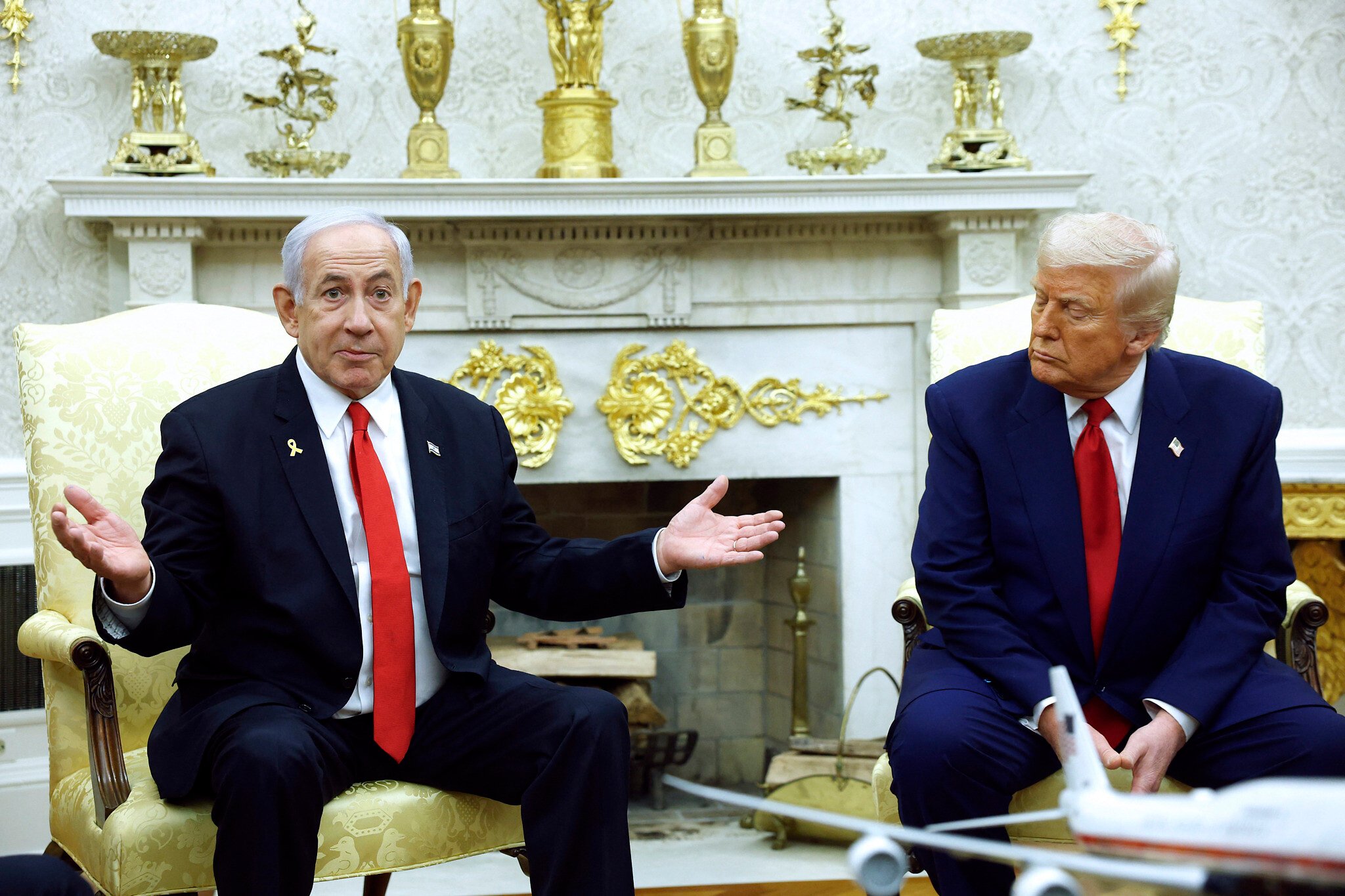Israel is deeply concerned that the US is closing in on a “bad deal” with Iran that will not meet Israel’s stated essential conditions for ensuring the regime cannot attain nuclear weapons, Channel 12 reports.
The report says Israel believes the negotiations ordered by President Donald Trump with Iran, led by envoy Steve Witkoff, are “very, very advanced,” and that the US is not sharing enough information with Israel on key specific issues. This, despite an ostensibly deep ongoing dialogue between Witkoff and Strategic Affairs Minister Ron Dermer, the report says.
The TV report, which quotes unnamed diplomatic, political and security sources, says Prime Minister Benjamin Netanyahu, Defense Minister Israel Katz and a senior IDF officer who cannot be named held an urgent consultation this week on the issue.
It says that during their telephone conversation on Tuesday, Netanyahu told Trump that he “does not rule out a diplomatic approach” but only on condition that the resulting deal would “leave no trace” of Iran’s nuclear program.
Trump confirmed that this is the American intention, the report says, and that the 60-day deadline he had set for a negotiated resolution remains in force, Channel 12 adds.
While this exchange eased Israel’s concerns “a little,” the TV report says, the security establishment remains very concerned about where the negotiations are headed. On the one hand, the US leadership is publicly declaring that Iran will not get nuclear weapons, but in contrast, “real progress” is being made toward a nuclear deal in a way that is “deeply disturbing,” the report cites unnamed experts as saying.
The third round of US-Iran talks, mediated by Oman, is set for Saturday. A technical, expert-level meeting, at which the sides are reportedly scheduled to begin drafting a framework for an agreement, was initially set for yesterday but later also moved to Saturday, Tehran announced on Tuesday.
Trump reportedly sprung the news on Netanyahu that he was initiating the talks with Iran when the prime minister was summoned to the White House on April 7. Netanyahu said in a Hebrew statement the next day that he and Trump “agree that Iran will not have nuclear weapons. This can be done by agreement, but only if the agreement is a Libya-style agreement,” whereby those responsible “go in, blow up the facilities, dismantle all the equipment, under American supervision with American execution. That is good.”
Witkoff indicated after the first round of talks that Washington would be satisfied with a cap on Iranian nuclear enrichment and would not require the dismantling of Iran’s nuclear facilities. A day later, he backtracked and said that any agreement would require the Islamic Republic to “stop and eliminate its nuclear enrichment and weaponization program.”
Yesterday, as satellite pictures emerged showing the regime fortifying buried nuclear facilities, US Secretary of State Marco Rubio said Trump was determined to prevent Iran from attaining a nuclear weapon, and would prefer to do that by negotiations as opposed to military means. However, Rubio said the US would be willing to see Tehran have a civilian nuclear program as long as it was not enriching uranium.

 www.timesofisrael.com
www.timesofisrael.com
The report says Israel believes the negotiations ordered by President Donald Trump with Iran, led by envoy Steve Witkoff, are “very, very advanced,” and that the US is not sharing enough information with Israel on key specific issues. This, despite an ostensibly deep ongoing dialogue between Witkoff and Strategic Affairs Minister Ron Dermer, the report says.
The TV report, which quotes unnamed diplomatic, political and security sources, says Prime Minister Benjamin Netanyahu, Defense Minister Israel Katz and a senior IDF officer who cannot be named held an urgent consultation this week on the issue.
It says that during their telephone conversation on Tuesday, Netanyahu told Trump that he “does not rule out a diplomatic approach” but only on condition that the resulting deal would “leave no trace” of Iran’s nuclear program.
Trump confirmed that this is the American intention, the report says, and that the 60-day deadline he had set for a negotiated resolution remains in force, Channel 12 adds.
While this exchange eased Israel’s concerns “a little,” the TV report says, the security establishment remains very concerned about where the negotiations are headed. On the one hand, the US leadership is publicly declaring that Iran will not get nuclear weapons, but in contrast, “real progress” is being made toward a nuclear deal in a way that is “deeply disturbing,” the report cites unnamed experts as saying.
The third round of US-Iran talks, mediated by Oman, is set for Saturday. A technical, expert-level meeting, at which the sides are reportedly scheduled to begin drafting a framework for an agreement, was initially set for yesterday but later also moved to Saturday, Tehran announced on Tuesday.
Trump reportedly sprung the news on Netanyahu that he was initiating the talks with Iran when the prime minister was summoned to the White House on April 7. Netanyahu said in a Hebrew statement the next day that he and Trump “agree that Iran will not have nuclear weapons. This can be done by agreement, but only if the agreement is a Libya-style agreement,” whereby those responsible “go in, blow up the facilities, dismantle all the equipment, under American supervision with American execution. That is good.”
Witkoff indicated after the first round of talks that Washington would be satisfied with a cap on Iranian nuclear enrichment and would not require the dismantling of Iran’s nuclear facilities. A day later, he backtracked and said that any agreement would require the Islamic Republic to “stop and eliminate its nuclear enrichment and weaponization program.”
Yesterday, as satellite pictures emerged showing the regime fortifying buried nuclear facilities, US Secretary of State Marco Rubio said Trump was determined to prevent Iran from attaining a nuclear weapon, and would prefer to do that by negotiations as opposed to military means. However, Rubio said the US would be willing to see Tehran have a civilian nuclear program as long as it was not enriching uranium.

Report: Israel fears US moving fast toward a ‘bad deal’ that won’t close down Iran’s path to the bomb
* * *
